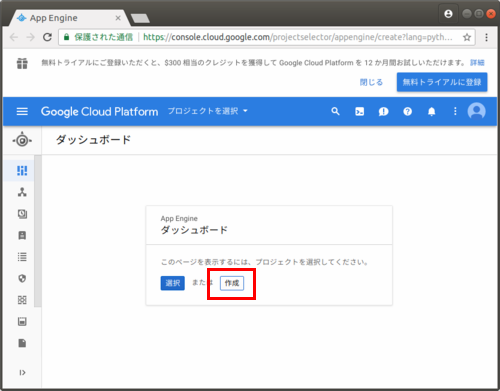

- Google app engine sdk install pyhion how to#
- Google app engine sdk install pyhion code#
- Google app engine sdk install pyhion plus#
More interestingly is what you'll find when you open the GCP browser shell.
Google app engine sdk install pyhion how to#
Google will forcefully insist you complete their own step-by-step tutorial, which essentially teaches you how to use git clone and explains the contents of their YAML file. Google provides the luxury of creating apps in a variety of languages, including hot new -comer to the game, PHP. The question of whether or not these perks are worth the price tag and vendor-lock are a personal decision. So yes, there are plenty of benefits and reasons to use App Engine over a VPS: removal of web server configuration, build errors caught at runtime, and easy command-line deployments name a few of such benefits. Oops.Įven while the app is live, all errors are conveniently detected and reported front and center in the app engine dashboard: "No module named App" seems like a pretty bad error
Google app engine sdk install pyhion code#
I even tried deploying some personal projects to App Engine which had been running live elsewhere, and App Engine was able to catch errors existing in my code which had been shamelessly running in production. Adding this type of interpreter adds a convenient level of 'easy mode,' where potentially fatal production errors are caught before deployment is even permitted. Despite the dynamically typed nature of Python and Javascript, App Engine will catch fatal errors when attempting to deploy your app which would not happen otherwise. Prepare to witness fierce and unapologetic growth from GCP by every metric, year-over-year.Īpp Engine is also intimately close with your source code. GCP's catalogue of offerings is destined to grow, whether those offerings are ferociously released from Google's ambitious backlog, or the result of a partnership utilizing Google Cloud for architecture, such as MongoDB cloud and others. Considering all microservices are obfuscated in the cloud, we can easily hook into other services such as setting up CRON jobs, Tasks, and DNS, for instance. The Benefits of App Engineīesides not needing to know anything about Linux, hosting on App Engine provides a few other benefits.


Spoiler alert: that's not the only typo, and I'm pretty sure at this point nobody cares to put up with monetized troubleshooting bullshit schemes (calling it now: the slightly-false-tutorial is an elaborate SEO scam).
Google app engine sdk install pyhion plus#
plus 10 pages of frustrated developers backlinking to said tutorial, trying to figure out where the hell the missing colon is in their Nginx config. This results in an infinite Google search feedback loop, where you find what seems to be a perfectly fine tutorial. Much of this can be attributed to tutorials (such as those posted by DigitalOcean) which dominate SEO, merely because those tutorials include glaring inexcusable typos in their configuration files. Remember when we all ran Apache servers, and the world decided that mod_python should stop existing for no reason? The replacement was, of course, mod_wsgi: an entirely undocumented way of running Python on an Apache server created by a single guy from Google (who has apparently opted to spend the entirety of his life attempting to explain mod_wsgi on StackOverflow).īesides mod_wsgi, the Nginx alternatives ( Gunicorn and uWSGI) are almost equally insufferable to implement. Random Old-Man Tangent About Configuring Webservers Then again, I'm probably just angry that nobody will have to endure the pain of Python development circa 2012. This is a trend that's been grinding my gears a bit: as much as I appreciate the reduction in effort, the costs of choosing proprietary (paid) services to avoid opening a Linux shell seems like a dangerous prospect over time as every day developers become more and more reliant on convenience.

Speaking of capitalizing on shitty UI, stay tuned in the future where we'll offer grossly overpriced unauthorized AWS certification programs.ĪWS aside, I'm here to talk about the other Cloud in town - in particular, Google's solution to make sure you never configure a webserver again. our analytics show that half our viewers are just people struggling to us AWS. We've been on a bit of a tear lately on Google Cloud lately (or at least I have), and I have no desire to stop any time soon.


 0 kommentar(er)
0 kommentar(er)
